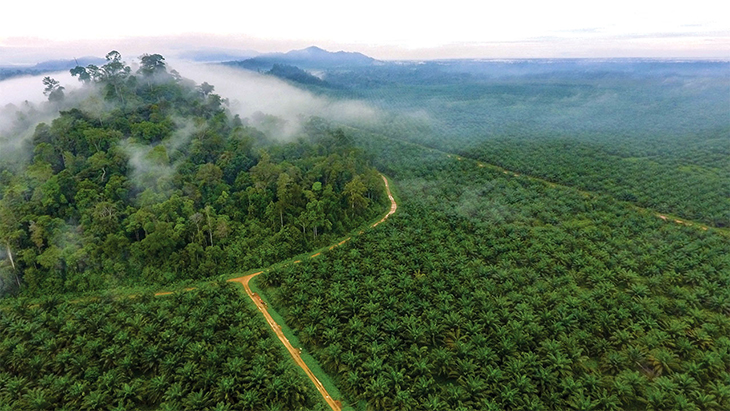
The advent of the palm oil industry has left an indelible mark on Southeast Asia, reshaping the landscape in ways that are both economically advantageous and environmentally detrimental. In response to this transformative era, the Indonesian government has taken a proactive stance by establishing a dedicated task force to meticulously examine all oil palm plantations. Their objective is clear: to compel those that have encroached upon protected lands to vacate.
The government’s estimations project a significant impact, with approximately half a million acres, equivalent to around 200,000 hectares, slated for removal. This bold initiative seeks to reclaim the tropical rainforest that rightfully belongs in these areas. The collaborative efforts of the internal security and environmental ministries underscore the gravity of the situation. Chief Security Minister Mahfud MD has not hesitated to issue stern warnings, including the prospect of legal action against palm oil companies that persist in illicit land use even after the designated deadline.
Critiquing governmental actions, especially in the realm of environmental conservation, requires a nuanced understanding of the inherent challenges. Governments, by their nature, tend to be slow and bureaucratic entities, and this tendency is exacerbated in developing nations. Factor in the complex geographical terrain of rural Indonesia, characterized by mountains and dense forests across numerous islands, and the hurdles in implementing swift and comprehensive actions become apparent. Notably, only 40% of plantation owners operating within forested areas have been identified, underscoring the enormity of the task at hand.
The task force, as reported by Reuters, has initiated its mission by imposing a deadline for the submission of paperwork from plantation owners. This documentation is crucial for delineating the extent and location of each plantation’s operations. Those found to be encroaching on designated forest areas will face eviction. Furthermore, the requirement for proper paperwork extends beyond mere bureaucratic formality; it is the gateway to obtaining legitimate cultivation rights. Plantation owners operating without this essential documentation expose themselves to criminal charges, signaling the government’s commitment to enforcing environmental regulations and reclaiming protected lands.
“The ones in protected forests and conservation forests, the government wants to restore after they pay the fine,” forestry ministry secretary-general Bambang Hendroyono said when he spoke to reporters in Jakarta. He also added that this will be part of the government’s efforts to mitigate the effects and onset of climate change.
Hendroyono approximates that, by the conclusion of the program, an extensive 200,000 hectares of land are slated for reclamation to foster natural ecosystems. Indonesia stands as one of the planet’s most biodiverse nations, boasting a myriad of isolated tropical rainforests across its expansive archipelago. This rich biodiversity, characterized by a significant degree of endemism, faces peril from the encroachment of palm oil plantations.
However, there are discernible positive shifts in these trends. Notably, the imposition of a moratorium on establishing new oil palm plantations has contributed to a noteworthy increase in forest survival rates. This indicates a pivotal step towards the restoration and preservation of Indonesia’s unique and threatened ecosystems.
Please comment below and share this news!
True Activist / Report a typo


